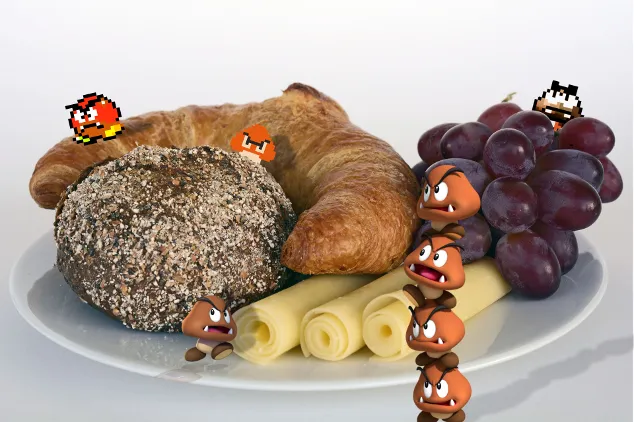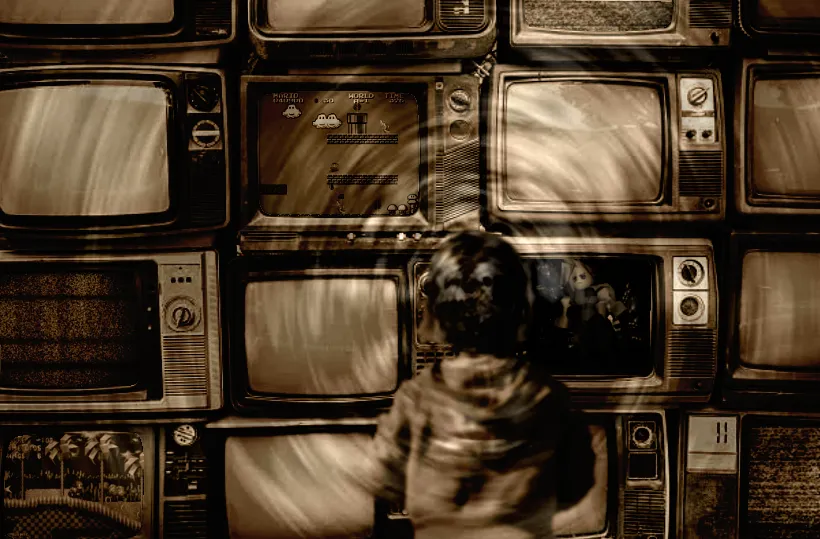I was reading through locikll's post, "Do Graphics In Games Matter?", and found myself writing a reply to his article that grew too large to be properly called a comment. Being so interested in the discussion I thought I'd share my thoughts on this, a nuanced topic all too often rendered down into hyperbolic sound bytes which fail to address the real problems and hinder meaningful discourse about these issues. So here is my reply to your question, Mr locikll:
Graphics do matter to me quite a bit!
I know this statement faces brazenly into the wind of current gamer culture as you can go to any video game based forum and see endless posts pontificating on the superior moral qualities of those who have chosen visual austerity over the decadence of 4k resolution and textures. (Sarcasm folks, enjoy it!) This is a natural response to an industry that is buckling under the financial weight of producing titles with ever greater visual fidelity as a sales-point issue. Resources are limited, and money spent on one facet of a game frequently does mean money is not spent on others. In a superficial world, this usually means script, performance, music, and gameplay suffer for the sake of resolution and texture. But I would argue that the conversation itself is flawed in that it all too frequently focuses on the issue as though it were an island unto itself and not a part of the total equation.
Of Grapes and Goombas
As was so keenly stated in locikll's article, graphics are the surface level interface. A game's visuals are the first way in which we engage with what is being presented to us and thus absolutely have great power to influence how we feel about any particular title. And this happens very quickly on booting up a piece of software! Whether or not a visual style is appealing and also appropriate to the subject matter it deals with is decided almost from the very first glimpse of a game's character or world, coloring the player's perception about what they experience until the last time they put down the controller.

I would suggest that it is the same principal at work as plating food in culinary arts. Arranging a plate artfully so that the meal is visually appealing does not objectively alter the flavor of any bite you take, but it does subjectively put you into a receptive mood in which you are more likely to think favorably of what is set before you. Especially when trying something new, and maybe a little scary, visual appeal can take some of the stress out of the experience. So too does an appropriate graphical presentation prime the player to be receptive to what ever experience the developers were trying to get across! A horror-survival game with cartoonish Super Mario styled cheer probably isn't going to warn you into turning those corners carefully specifically because you are not receiving the visual information necessary to put you in that tense space. It's not enough to say "the game is scary! BOO!". As an author would say, "Show, don't tell."
The Hallways of Our Minds
Having said all of that, I do agree superficially with those who say that gameplay comes first. A pretty game in which the player's character handles poorly, or in which the net code is too broken to present a fair playing field to everyone involved in the competition, will not ride on the merits of its aesthetics alone. I grew up in the 1980s and spent entirely too much of my youth planted right in front of an old (even by those standards) crt television that had seen better days, playing my NES who's graphics were jaggy squares stacked on top of each other with very few colors. Never the less, this did not inhibit that all-sought-after immersion experience that so many gamers go on and on about today. I still cheered for my victories over the forces of evil wizards in Final Fantasy, I gripped the controller tensely as I navigated the labyrinthine corridors of Zebes, and laughed at the immature antics of Toe Jam and Earl as they burped their way through an "alien" world. This is because the then-novel gameplay elements and stylistic choices worked in tandem to craft a unique experience that drew me in despite the primitive nature of the medium in my youth.

This demonstrates clearly that immersion is not the product of graphics alone, but of a holistic experience that includes novel mechanic development, art work, music direction, proper difficulty scaling, incentivizing player behaviors rather than penalizing player mistakes...a whole dissertation can be written on the subject. And this highlights the flaw with the "are graphics important" argument. It renders the issue down to a sound-byte style rhetoric which is so over simplified that it no longer has much in common with the reality of what makes a game successful, and what place each of these pieces of the puzzle belong in as a part of a bigger whole.
Graphics cannot make a bad game good, and yet there's no good game which couldn't be made better by having a thoughtful visual experience that has been tailored to support the moods and behaviors that make a gamer's experience immersive.
If you would like a 1920 x 1080 copy of the Goombas enjoying a picnic, you can get that here. Enjoy!